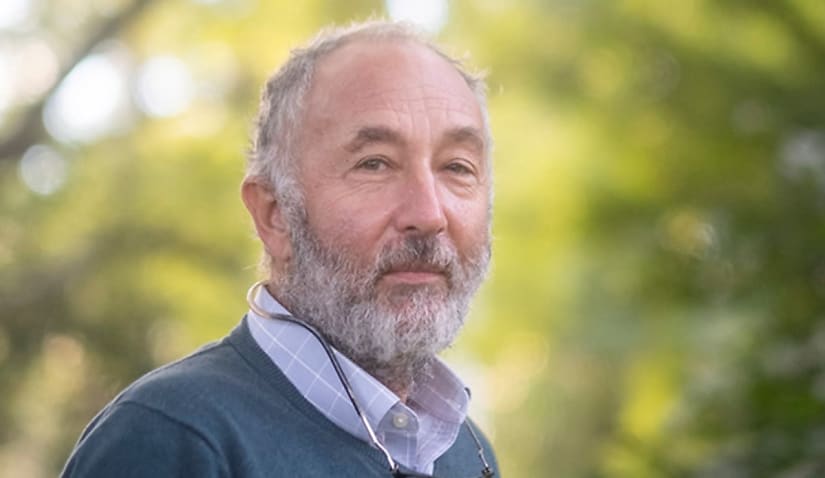Following years of pseudolaw burdening courtrooms, the extremist and cult-like “sovereign citizen” movement has escalated to a dangerous and deadly level, a dean of law and former magistrate has warned.

The alleged killings of officers Neal Thompson and Vadim De Waart-Hottart by Dezi Freeman brought the “sovereign citizen” (SovCit) movement into the spotlight, alerting the Australian public to a group of people who claim government law has no power over them.
While the SovCit movement is far from new to Australia, dean of Law at Southern Cross University (SCU) and former magistrate David Heilpern warned the killings, Freeman’s manhunt, and subsequent police action brought it to a “significant, dangerous, pointy end”.
On the latter, West Australian police only recently announced it had carried out a statewide operation that involved the execution of search warrants at 70 addresses of people allegedly aligned with the SovCit movement and the recovery of 135 firearms.
“I can think of no other movement in Australia that has led to the deaths of four police officers,” Heilpern said.
Heilpern said he noticed the SovCit movement around three decades ago, when he was first appointed a magistrate, but only in a “very rare context”. However, the Australian chapter can at least be traced back to 1970, when Leonard Casley established a micronation in Western Australia known as the Principality of Hutt River.
It really took off around the pandemic, with academics, law enforcement agencies, and judicial officers linking it to a growing mistrust in the government’s public health orders. Given Victoria had the toughest lockdowns, Heilpern said it is “not surprising” the state has witnessed some of the worst of the SovCit fallout.
Just over a week before Freeman’s alleged killings, Four Corners released a program on the sovereign citizen movement that featured interviews with some of its members. One was a former law student who said he “questioned the law” after the Australian borders closed.
Leith Masters, from the Sovereign Peoples Assembly of Western Australia, told the Four Corners journalist “everyone was a sovereign citizen”, and the movement was “the architecture of law and legal”.
Referring to a diagram of “law versus legal”, Masters said “sovereign” was in the “living” – or law – and was evidenced by the “breath, the ultimate evidence of living”. There were also references to a “great awakening” and a movement “out of the legal system” of guardianship.
For courtrooms, this meant a growing number of self-represented people were burdening an already full caseload with pseudolaw submissions. The requirement to hear and consider all parties meant a lot of time had to be set aside to deal with them.
“What we’ve got is a group of people who have a set of beliefs that is completely unrecognised by the vast majority of, or by all, legal systems and all parliamentary systems,” Heilpern said.
Comparing it to those who believe the Earth is flat, Heilpern said their conspiracy theory can be easily debunked “with a walk in one direction”. With sovereign citizens, it is very difficult to convince them against the idea that the law is a social construct.
“We don’t want to stop people making novel and unique arguments, but in this case, they simply don’t believe that the legal system applies to them at all, and it’s very hard to start from that spot,” he said.
Asked how he dealt with it as a sitting magistrate, Heilpern said it needed a lot of “grace and patience” because the High Court has set special requirements for dealing with self-represented parties, no matter how “incongruous” their arguments may seem.
“You deal with it as best you can. Certainly, it’s very easy to lose patience with people in those circumstances,” he added.
Heilpern did have some success with Robert Sudy, who went on to establish “Freeman Delusion”, a significant database that has tracked pseudolaw and warned others from buying into the SovCit movement. Heilpern said it was the “best resource” for the anti-sovereign citizen movement.
In much the same way intervention programs are run for domestic violence, drug and alcohol issues, and anger management, Heilpern said there may be some utility in providing programs for those who come before the court with pseudolaw submissions.
There is still the possibility to talk people out of “absurd beliefs”, starting with showing them it “just never works”.
While some websites promote the message they have had success across issues like traffic offences and family disputes, Heilpern said the reality is pseudolaw “never succeeds”. If people are shown that, there may be “some success” in crushing the movement.
However, more than anything, what the sovereign citizen movement needs is government intervention, particularly on the websites that promote a subscription-based service and survive on profit-making.
Heilpern said he “could not understand” why regulatory agencies have yet to crack down on these websites.
“These organisations are able to continue to sell their rubbish to vulnerable people and make a profit out of it … A failure to act on these profit-making sites leads to escalation,” Heilpern said.
